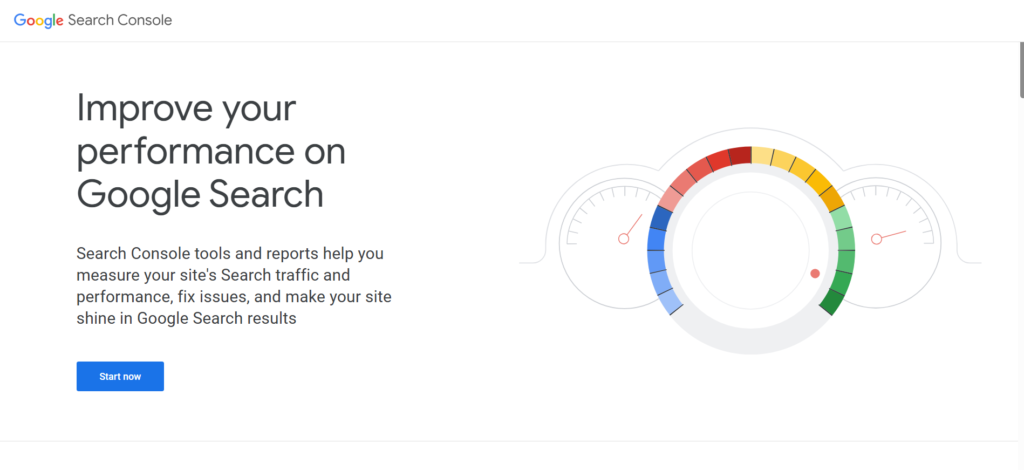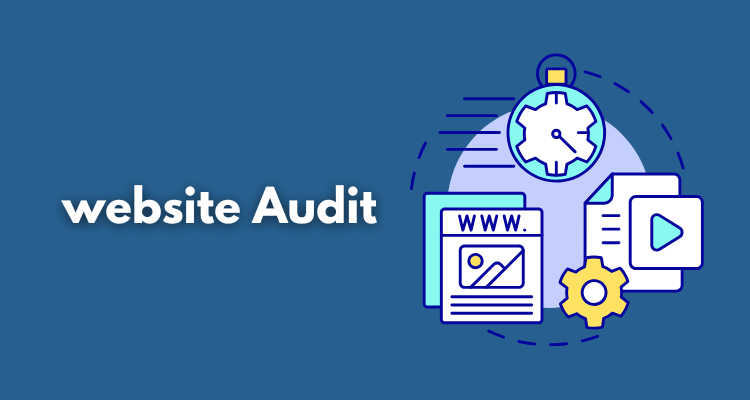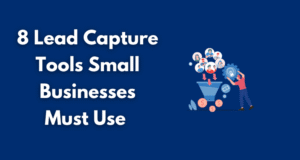Table of Contents
ToggleI. Breaking Down the Basics: What Exactly is a Website Audit?
Let’s start with the big question: what is a website audit? Imagine your website as a car that takes your audience from Point A to Point B. Like any car, it occasionally needs a check-up to ensure it’s running smoothly and safely. A website audit is essentially that check-up—but instead of oil changes and tire rotations, we’re inspecting site speed, SEO issues, design usability, and performance. Don’t worry, you don’t need to be a mechanic (or a tech wizard). The goal is to identify what’s working well, what’s not, and how to optimize it.
A good website audit can uncover hidden barriers that might be sabotaging your search rankings or turning visitors away. It’s not just about making your site look pretty (although aesthetics help); it’s about ensuring every piece of your digital real estate contributes to your overall goal, whether that’s sales, leads, or engagement. So, if you’re wondering why visitors aren’t staying or why your SEO efforts aren’t bearing fruit, a website audit can provide the clarity you need.
What Are the Core Areas of a Website Audit?
Don’t worry if this feels overwhelming at first; breaking it down into smaller chunks makes it manageable. Here are the key areas your audit will likely cover:
- Site Health and Performance: Is your website loading quickly? Are there broken links? Performance issues can drive users (and search engines) away.
- SEO Evaluation: This is about analyzing keywords, metadata, internal linking structure, and more. Your site should communicate effectively with search engines.
- User Experience (UX): Is the navigation intuitive? Are forms easy to fill? If visitors can’t easily browse and engage with your site, they might leave faster than you can say “high bounce rate.”
- Content Quality: Are your blog posts, product descriptions, or landing pages resonating with your audience? Content is at the heart of any good website.
- Technical SEO: This dives deeper into things like HTTPS implementation, mobile responsiveness, and crawlability.
Why Should You Care About Website Audits?
Alright, so now you know what a website audit is. But here’s why it matters: the internet isn’t static. Algorithms change, user expectations evolve, and competitors are constantly improving. A website that was perfect a year ago could now be outdated in terms of technology and SEO practices.
Pro Tip: Regularly auditing your website is like keeping your plants watered. Neglect it for too long, and things start to fall apart. By staying proactive, you’ll not only troubleshoot existing problems but also future-proof your site for what’s ahead.
How You’ll Master This in the SEO Internship
In our SEO internship, we’ll teach you how to approach website audits in a structured, no-stress way. You’ll learn to take a deep dive into analytics, explore specific tools (more on those later!), and interpret findings. By the end, you’ll feel like Sherlock Holmes of the digital world, unraveling site mysteries and empowering businesses to succeed with your insights.
And here’s the best part: once you understand the “why” and “how” behind website audits, you won’t just use them to solve problems. You’ll start spotting opportunities—ways to outshine the competition, bring in more traffic, and enhance user delight.
Ready to roll up your sleeves and start auditing? Let’s get into the nitty-gritty of what makes websites tick in the sections to come!
The Secret Sauce: How Website Audits Impact Your SEO Success

Let’s talk about the magic behind website audits and why they hold such a crucial role in the success of your SEO efforts. Think of website audits as your personal GPS for the online world. Without them, navigating the road to SEO success can feel like a shot in the dark. But with the right audit, every twist and turn becomes clear. Buckle up, because we’re about to dive into why this is such a game-changer for your SEO!
1. Unearthing Website Weaknesses
A website audit is like a skilled detective, combing through every nook and cranny of your website to uncover hidden issues. Got broken links? Poor mobile optimization? Slow page loading times? Website audits shine a big, bright spotlight on these problems. And here’s the best part: once you know what’s holding you back, you can start addressing these weaknesses strategically. After all, how can you fix something if you don’t even know it’s broken?
2. Enhancing User Experience (UX)
Great SEO is closely tied to great user experiences. With a website audit, you can ensure that visitors navigate your site with ease. A smoother, more intuitive user experience not only keeps people on your site longer but also improves your Google rankings. Search engines love websites that meet user expectations—and audits help you identify the tweaks needed to keep everyone happy.
3. Boosting SEO Rankings with Technical Accuracy
Here’s where the “secret sauce” comes in. Search engines like Google use complex algorithms to rank websites. These algorithms look at factors like site speed, HTTPS security, optimized images, metadata, and crawlability. A website audit evaluates all these elements, ensuring your site aligns with the technical criteria needed to boost your SEO rankings.
Many businesses also pair audits with advanced GEO Optimization Services to improve regional visibility and capture location-based search traffic more effectively. This tech-savvy approach makes all the difference in giving you that competitive edge!
4. Identifying Content Gaps and Opportunities
Your content game needs to be strong to stay ahead in SEO, and audits help you level up. By analyzing existing content, audits pinpoint the gaps: Are you missing key topics? Is your content outdated? Are keywords used properly? From here, you can take action, creating fresh, relevant content that speaks to your audience and search engines alike.
5. Trackable Progress and ROI
Here’s a value-packed perk of website audits: they’re measurable. You can track how each adjustment improves your website’s performance, whether it’s higher search engine rankings, increased traffic, or better conversions. For businesses—big or small—this is gold because it justifies your SEO investment with real, tangible results.
Quick Wins and Long-Term Payoff
Even small fixes uncovered during a website audit can lead to quick wins, like faster loading times and improved rankings. But don’t underestimate the long-term benefits! Conducting regular audits keeps you a step ahead of competitors, adapting to ever-changing algorithm updates and user trends.
How It All Comes Together…
- Website audits keep your site streamlined and focused, providing a solid SEO foundation.
- They uncover actionable insights, helping you turn potential challenges into opportunities.
- And most importantly, audits empower you to provide the best possible experience for both users and search engines!
So, if you’ve been wondering why website audits are hyped up in the SEO world, now you know! This secret sauce is about dissecting, strategizing, and ultimately perfecting your online presence. Ready to master it? Dive deeper during your internship, and you’ll quickly see the tremendous value these audits bring to the game!
III. Key Tools at Hand: A Closer Look at the Must-Have Resources for Website Audits
So, you’re ready to dive into the exciting world of website audits. That’s amazing! But wait—how exactly do you start unlocking those hidden insights that can take a website from “meh” to “wow”? The answer lies in your tools. Let’s roll up our sleeves and explore some essential resources that can make your website audits not only effective but also downright enjoyable.
1. Google Search Console: Your Free Starting Point

If you’re a newcomer, or even an experienced SEO wiz, Google Search Console (GSC) should always be your go-to tool. Why? It offers a treasure trove of data directly from Google itself! Some key things you’ll love about GSC:
- Site Performance: Spot trends in clicks, impressions, and site traffic.
- Index Coverage: Discover which pages are indexed—and which are throwing red flags.
- Search Insights: Learn what keywords are bringing visitors to your website.
The cherry on top? It’s free, beginner-friendly, and packed with actionable data. Logging into GSC should quickly become a habit during any website audit.
2. Ahrefs or SEMrush: Your Swiss Army Knife

Both Ahrefs and SEMrush are like the multi-tools of the SEO trade. These paid platforms are more than worth the investment, offering features that help you dig deeper:
- Analyze backlinks for website authority.
- Find on-page technical issues.
- Conduct competitor research to see how your site stacks up.
Think of these tools as your powerful sidekicks, helping you expose what really works (and fix what doesn’t).
3. Site Audit Tools: Screaming Frog and Others

Screaming Frog SEO Spider may sound like a superhero name, and honestly, it kind of is! This desktop application crawls websites to uncover technical issues like broken links, duplicate content, slow load times, and more. It’s efficient, reliable, and a lifesaver when auditing large sites.
Other great tools like Sitebulb and DeepCrawl also provide visual reports that bring clarity to technical SEO insights. It’s like having an X-ray machine for your website.
4. PageSpeed Insights and GTmetrix: For Speed Enthusiasts

We all know a slow website is an SEO disaster. PageSpeed Insights by Google and GTmetrix show you exactly what’s causing delays in your website load times. Bonus points: They’ll even offer suggestions to turbocharge your site’s speed!
5. Browser Extensions: Quick, On-the-Go Assistance
Your browser can become an audit powerhouse with extensions like:
- SEO Minion: Perfect for testing meta tags, broken links, and more.
- Redirect Path: Handy for spotting redirect errors (a big no-no for SEO).
- MozBar: Use it to overlay key SEO metrics while browsing.
Who knew plug-ins could make life so easy?
Make the Tools Work for You
Here’s a friendly tip: Don’t get bogged down by all the features these tools offer. Focus on the ones that align with your audit goals. Think of it like cooking—start with the basic ingredients, and only add spice once you’ve nailed the essentials. Whether you’re analyzing bounce rates or uncovering crawl errors, each tool has a specific purpose in your SEO toolkit.
So, go ahead. Try out these tools, experiment, and figure out which ones you love. And remember, practicing with them during our SEO internship will transform you from a nervous beginner into a confident pro in no time. Happy auditing!
IV. Common Website Audit Pitfalls That Interns Need to Know
Alright, let’s roll up our sleeves, folks! Website audits can be a game-changer for SEO, but they’re not without their perils. Here, we’re diving deep into the common pitfalls that many interns (and even seasoned experts) fall into, so you can steer clear with your head held high. Ready? Let’s go!
1. Skimming Over the Surface
One of the biggest mistakes is performing audits on autopilot. Clicking through tools and pasting reports into slides may feel productive, but it won’t give you the rich insights you need. Remember: website audits are not just busy work; they’re detective work. Dig into those findings, explore anomalies, and ask why. If you skip this deeper analysis, you’re leaving valuable opportunities on the table.
2. Ignoring Mobile Usability
Over 50% of web traffic comes from mobile devices, yet mobile usability is one of the most overlooked aspects of website audits. No excuses here. If a website isn’t optimized for mobile, it’s losing out big time—both in rankings and user satisfaction. When auditing, comb through elements like button sizes, font legibility, and overall responsiveness on mobile devices. It’s non-negotiable in today’s world.
3. Overloading on Tools
Tools are wonderful, but don’t let shiny interfaces distract you! Using too many tools without a focused strategy can lead to redundant data (and trust us, no one’s excited to wade through 10 reports that all say the same thing). Instead, stick to the core tools you trust, like Google Analytics or Screaming Frog, and learn how to interpret their data effectively.
4. Forgetting User Experience (UX)
It’s easy to get tunnel vision with technical SEO and overlook the user. If visitors find the website clunky, slow, or confusing, no Meta description magic or well-placed keywords can save it. Always consider: How does this website feel to a real person? Poor UX can lead to high bounce rates, which sends a bad signal to search engines—so it’s a crucial part of the audit process.
5. Overlooking Speed Issues
Website speed is like the first impression: make it count. A slow-loading website frustrates users and hinders SEO rankings, yet many audits miss the mark here. Use tools like Google PageSpeed Insights to identify issues, and then get actionable with solutions like optimizing images, using caching, or implementing a good CDN (Content Delivery Network).
6. Neglecting Internal Linking
Search engines don’t just value external backlinks; your internal links also contribute to your SEO game! Skipping over an internal linking analysis is a frequent rookie mistake. Look for orphaned pages (those with no internal links pointing to them), and ensure your content is interwoven in a meaningful way. It helps both users and search engines navigate your site effectively.
Pro Tip: Start with a Checklist
If this all feels overwhelming, don’t worry—it’s totally normal when you’re starting out. Creating a checklist is your secret weapon. Organize your audit steps into logical categories like technical issues, on-page SEO, content quality, and UX. Not only does this make your life easier, but it also helps reduce the risk of missing something important.
- Technical: Crawl errors, HTTPS status, mobile-friendliness.
- On-Page SEO: Title tags, meta descriptions, headers.
- Content: Duplicate issues, keyword relevance, freshness.
- UX: Page speed, navigation clarity, overall aesthetic.
The Bottom Line
Auditing websites takes practice and sharp attention to detail, but avoiding these common pitfalls will set you on the path to delivering stellar results. Remember, this isn’t just about ticking boxes; it’s about uncovering the hidden gems and problem areas that can transform a website’s performance. Stay curious, stay focused, and soon enough, you’ll be an audit superstar!
V. From Analysis to Action: Turning Audit Results into Real Improvements
So, you’ve conducted a website audit and now you’re staring at an overflowing list of issues, potential fixes, and SEO opportunities. Where do you even start? Don’t worry—this is where the magic happens. Transforming your audit results into actionable improvements is like turning raw ingredients into a Michelin-star dish. Let’s break it down and make it as straightforward (and fun) as possible!
1. Prioritize Like a Pro
Not all recommendations are created equal, and that’s perfectly okay. Have a lot on your plate? Take a deep breath and focus on priorities. Identify which aspects of your site need immediate attention and which ones can wait. A good way to tackle this is to focus on issues that directly impact user experience and SEO performance. Think broken links, slow loading speeds, and poor mobile usability. These are your high-priority items.
Ask yourself: What improvements will bring the biggest ROI (Return on Investment) in traffic and rankings? Tackle these “wins” first, then move on to medium or lower-priority fixes.
2. Break It Down into Bite-Sized Tasks
A full audit report can feel overwhelming, but don’t let it paralyze you. Take small, manageable steps to address each issue. Think of it as climbing a staircase—one step at a time. Create a task list with specific items like:
- Fix broken internal links
- Optimize large images for faster loading
- Review and update meta descriptions
- Resolve duplicate content issues
Breaking it down makes a complex task seem achievable. When you check things off, it’s incredibly satisfying and keeps momentum going!
3. Collaborate and Communicate
Sometimes, implementing audit fixes isn’t something you can do alone. You might need the help of a developer, content creator, or designer. Communicate your findings clearly, supporting your suggestions with data from the audit. For example:
“Our website speed is lagging behind competitors because our homepage takes 6 seconds to load. A speed improvement could enhance user retention by 20% and likely improve search rankings.”
Data-backed reasoning helps get others on board and makes collaboration a breeze.
4. Measure Your Progress
If you don’t measure your progress, how will you know what’s working? After implementing changes, track the impact using tools like Google Analytics, Search Console, or your favorite SEO tools. Keep an eye on:
- Organic traffic growth
- Improvements in search engine rankings
- User behavior, like bounce and conversion rates
As you see positive changes, you’ll feel more inspired to keep up the good work!
5. Repeat, Refine, and Stay Curious
SEO isn’t a one-and-done task—it’s an ongoing process. New trends, algorithm updates, and website changes mean there’s always room for improvement. Regularly audit your site and refine your approach. Staying curious and flexible is key to being an SEO rockstar.
Final Thoughts
Turning your website audit results into real improvements is the bridge between insight and impact. By prioritizing tasks, collaborating with your team, and measuring your progress, you’ll be on your way to crafting a powerful, optimized website.
Remember, the effort you put in now will pay off later as your website climbs higher in rankings and delivers a stellar experience for your audience. So go ahead, roll up your sleeves and let those audit results shine!
VI. Learning by Doing: Case Studies from Our SEO Internship Program
There’s a famous saying – “Practice makes perfect,” and nowhere does it hold more truth than in mastering website audits. In our SEO Internship Program, we take this wisdom to heart by giving you hands-on exposure to real-world scenarios. Let’s dive into how these case studies unfold and why they are an absolute game-changer for budding SEO professionals like yourself!
Why Case Studies? The Art of Learning Through Experience
Reading about a website audit is one thing, but rolling up your sleeves and performing one under realistic circumstances? That’s a whole different level of learning. Our case studies are actual websites, often with diverse challenges like poor page speed, broken links, thin content, or outdated technical SEO practices. By working through these real cases, you’ll learn to identify issues, interpret data, and recommend actionable solutions – skills that are indispensable for a thriving SEO career.
The Breakdown: How Our Case Studies Work
- Step 1: Understanding Project Background – Each case study kicks off with a detailed overview of the website you’ll be auditing. What’s the website’s purpose? Who’s the target audience? What are its goals? This context is crucial for crafting a meaningful audit.
- Step 2: Getting Hands-On with Tools – Armed with tools like Google Analytics, Screaming Frog, and SEMrush, you’ll dive deep into the site. You’ll get a guided tour through the data, uncovering critical performance insights and SEO gaps.
- Step 3: Synthesizing Findings – After collecting your data, it’s all about connecting the dots. What are the major issues? What patterns are emerging? You’ll organize your findings into manageable categories, ready for the next stage.
- Step 4: Presenting Actionable Recommendations – Once the audit is complete, you’ll propose improvements. This includes everything from fixing technical issues like crawl errors to recommending on-page SEO tweaks. You’ll also learn to prioritize – not every problem needs fixing right away!
One Memorable Example: How We Revived a Struggling E-Commerce Site
In one of our favorite case studies, interns tackled an e-commerce site suffering from declining traffic. The audit revealed various red flags – duplicate content, a high bounce rate, and painfully slow mobile load times. Here’s what happened next:
- Duplicate Content Fix: Interns identified canonicalization and strategic internal linking as solutions.
- User Engagement Boost: By using heatmaps, they proposed altering certain design features to make key pages more engaging.
- Speed Optimization: After compressing images and addressing unnecessary scripts, the site’s mobile performance improved drastically.
Post-implementation, traffic skyrocketed by 40%, and the site’s conversion rate saw a beautiful uplift. Witnessing this transformation was incredibly motivating for everyone involved – you could say it was a mic drop moment!
Expert Tip: Make Mistakes and Learn
Don’t be afraid to get things wrong during a case study. In fact, making mistakes now is one of the best ways to grow. Getting stuck on a tricky crawl issue or misinterpreting a metric? That’s not failure – it’s learning in disguise. And with expert mentors around every corner, you’ll always have a safety net to catch you!
Get Ready to Build a Portfolio
Another fantastic perk of these case studies? They don’t just build your skills – they build your portfolio. Think of how impressive it’ll be to showcase your contributions to real-world audits during a job interview. For future employers, these completed case studies scream, “Hire me – I know my stuff!”
So, ready to unlock the magic of learning by doing? Join us in dissecting websites, solving problems, and sparking amazing results. You’ll not only emerge as an SEO whiz but as someone who’s confident and ready to take on the digital world!
VII. Building Your Expertise: How Mastering Website Audits Can Boost Your Career
Let’s dive into one of the most exciting aspects of learning website audits: their profound impact on your career. Mastering this skill not only positions you as a valuable asset in the ever-evolving field of SEO but also opens the doors to countless opportunities in the digital marketing world. So how exactly can website audits give your career the boost it needs? Let’s talk about it!
Why Website Audits Are a Career Game-Changer
First things first: website audits are a cornerstone skill in SEO. Almost every company, regardless of size or industry, relies on an optimized website to succeed. And guess what? These websites constantly need tuning to stay competitive in search rankings. When you know how to perform thorough website audits, you’re no longer just someone familiar with SEO; you’re now equipped with the expertise to:
- Identify website inefficiencies and provide actionable fixes.
- Boost organic traffic and conversion rates for businesses.
- Pinpoint and solve technical or structural issues that are holding websites back.
This ability alone can help make you stand out from the crowd, all while demonstrating that you have a practical, problem-solving mindset that employers love.
Expanding Your Professional Toolbox
Website audits are not just about pointing out what’s wrong. By mastering audits, you gain a holistic understanding of how websites function. You’ll learn the intricate dance between technical SEO, user experience (UX), site speed, content quality, and link structure. Over time, this knowledge can translate into other advanced skills such as:
- Becoming confident in using cutting-edge SEO tools like Screaming Frog or Ahrefs.
- Sharpening your ability to present insights effectively to clients or teammates.
- Leading initiatives to tackle complex website overhauls or migrations.
These are skills that go far beyond just SEO internships – they help you build the foundation to tackle higher-level roles like SEO strategist, digital marketing consultant, or web analytics expert.
Enhancing Your Job Prospects
Let’s be real: the job market can be competitive, especially in digital marketing. But here’s the good news – professionals with a proven track record of conducting website audits are in demand. Hiring managers are always looking for applicants who don’t just talk about theoretical strategies but can also roll up their sleeves and deliver measurable improvements. By showcasing your audit expertise on your resume or LinkedIn, you can:
- Land freelance projects with small businesses or startups.
- Impress agencies looking for SEO and web performance whizzes.
- Position yourself as a thought leader in the online marketing community.
In short, mastering website audits makes you a unicorn – someone who combines technical know-how with real-world results.
Continuous Growth: The Skill That Keeps on Giving
Here’s something that makes website audits even more rewarding: they evolve with the industry. As technology changes and search engines update their algorithms, your auditing skills grow. You’ll stay on your toes, adapting your approach and keeping up with the latest best practices.
This adaptability ensures that you stay at the forefront of your field, making you an indispensable contributor to any team. Plus, every audit you perform gives you a greater sense of confidence – you’ll become faster, sharper, and more precise with each project.
Conclusion
So there you have it – learning website audits is like learning a superpower. It’s your ticket to standing out in a crowded marketplace, growing your digital marketing skills, and opening doors to incredible career opportunities. Are you ready to embrace this transformative skill and let your career soar? We can’t wait to support you along the way!









